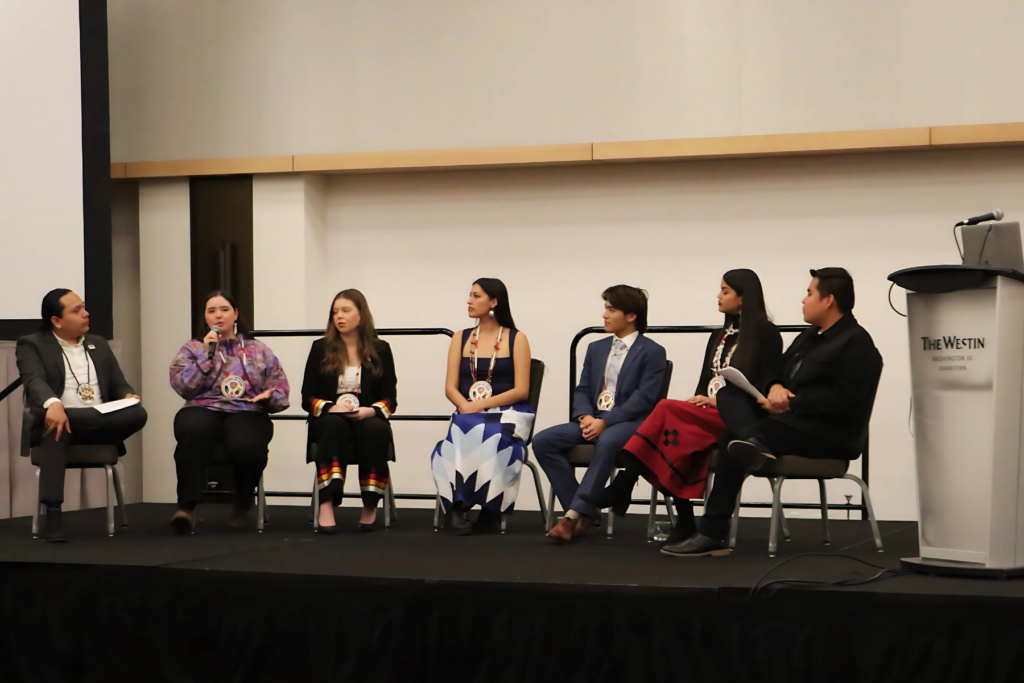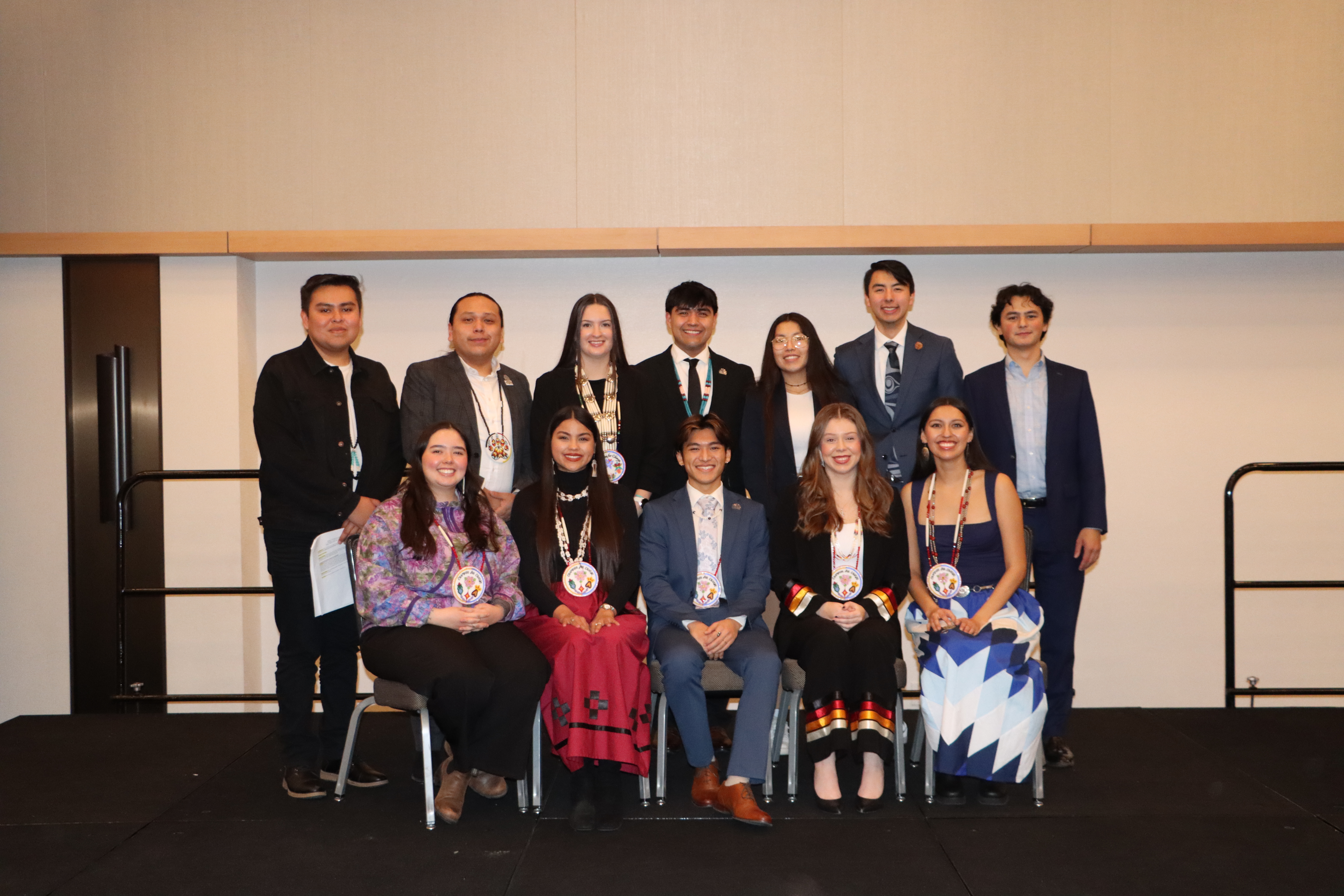On Tuesday, February 11, the 2025 Champions for Change (‘Champs’) participated in a panel discussion at Bridging Generations, Building Action. This public reception was cohosted by the Center for Native American Youth (CNAY) and the National Congress of American Indians (NCAI) Youth Commission during the NCAI Winter Session in Washington, DC – attended by Tribal leaders and other influential community members from across Indian Country.

The Champs Panel was moderated by the NCAI Youth Commission Co-Vice President and Secretary – Jovi Williams (White Mountain Apache Tribe) & Wambli Quintana (Navajo/Cheyenne River Sioux) – both of whom are former Champions for Change.
Joshua Ching (Kanaka Maoli) emphasized how “kuleana,” the Hawaiian value of “responsibility,” is understood to be joyful, not burdensome (as some Western cultures often view responsibility). Once the youngest elected official in Hawai’i, Josh now lives as part of the Pasifika Diaspora, thousands of miles from home in Connecticut. Through this distance, he has learned that kuleana stretches across oceans. Among other pursuits, Josh founded the Indigenous Peoples of Oceania at Yale and continues to lead political campaigns back in Hawai’i.
Even if I’m not in Hawai’i, Hawai’i will find me.
Joshua Ching
For Katie Lynch (Citizen Potawatomi Nation), STEM is personal. As a PhD student in Health Infrastructures & Learning Systems at the University of Michigan Medical School, she believes that youth are not “future scientists” or “academics in training,” but the scientists and academics of today. She urged the other youth in the rooms to “do what you love and let it fuel you.” Katie believes in rejecting a deficit narrative, and instead embracing “intergenerational love and joy.”
Take your personal narrative and turn it into something unignorable.
-Lily Painter
When asked about how she sees storytelling as a tool for advocacy, Lily Painter (Kiowa/Winnebago) shared how she is drawn to the idea of what “we are really trying to preserve and the weight of what stories reach us.” Her work with Matriarch Medicine and NDN Girls Book Club highlights the power of art and storytelling in addressing critical issues, like the MMIWG2S+ crisis. She elaborated on how important it is for young people, in particular, to turn their stories into action.
Maiyuraq Nanouk Jones (Native Village of Unalakleet) spoke to the crowd about how she grew up knowing the taste of caribou, and how important that is to her as an Inupiat woman. As a student of environmental science and advocate for the Arctic, Maiyu believes that Indigenous communities thrive when they work to maintain a sustainable environment – just as her people have always done. Maiyu also firmly believes that youth can help to restore this balance, so long as people take seriously what they have to say.
Shifting the conversation to data sovereignty, Lourdes Pereira (Hia-Ced O’odham/Tohono O’odham) acknowledged many tribes are “not stewards over our own information.” While lasting change is difficult to bring about, she has committed to advocating for intellectual property rights and working to digitize traditional knowledge for generations to come – inspired by a box of her grandmother’s microcassettes she found in her family’s garage.
The Champs punctuated the conversation with a call for the Tribal leaders in the room to truly open their doors to youth, and listen to what they have to say. And for allies who want to help support the work of Native youth and their communities? Open the lines of communication! (& read a Native-written book…)


